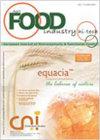Nutriative Support Strategy in the Catering of Preschool Children with the Food Intolerance
Q Engineering
引用次数: 0
Abstract
Catering in child welfare institutions, considering the individual characteristics of food tolerance, is an urgent problem. The research aims at substantiating and optimizing the preschool children diet with food intolerance scientifically. The authors assessed diets of children with food intolerance – pupils of a specialized preschool institution located in the ecologically unfavorable territory of the Sverdlovsk region. A man developed scientifical ly based diets in accordance with the physiological needs and clinical and immunological children profile. 97.8 % of the children included in the study demonstrated food intoler ance, and each child had the recommendation to exclude from 1 to 29 products. The diets developed by the immunologist in preschool had an unreasonably limited range of food products, did not meet the physiological need for energy, macronutrients, vitamins B1, B2, calcium. A man relates eggs, milk and fish intolerance to a permeability violation of the natural intestinal mucosa barriers. The diet modeling in the preschool institutions relied on the clinical and immunological studies data, adaptive-compensatory and detoxification mechanisms of food substances action. The developed hypoallergenic menu enables to optimize the diet in terms of nutrient and amino acid composition, in particular by imple menting foods with increased nutritional and biological value. A man adjusted the diet to the physiological needs of children, strengthened the protective-compensatory and detoxification orientation to reduce the morbidity risk. The initially formed elimination nutrition model in preschool leads to a protein-energy deficit, dietary fiber, B vitamins and minerals (calcium) deficiency, which affected the physical children development, and the metals elimination, decrease in the protective and adaptive body functions, worsening atopic dermatitis symptoms.学龄前儿童食物不耐受饮食中的营养支持策略
儿童福利机构的餐饮,考虑到个体对食物耐受的特点,是一个迫切需要解决的问题。本研究旨在科学地证实和优化学龄前食物不耐受儿童的饮食。作者评估了食物不耐受儿童的饮食-位于生态不利的斯维尔德洛夫斯克地区的一个专门的学前教育机构的学生。一名男子根据儿童的生理需要和临床及免疫状况制定了科学的饮食。研究中97.8%的儿童表现出食物不耐受,每个儿童都被建议排除1到29种产品。免疫学家在学龄前制定的饮食有一个不合理的有限的食品范围,不能满足对能量,常量营养素,维生素B1, B2,钙的生理需求。一名男子将鸡蛋、牛奶和鱼类不耐受与天然肠粘膜屏障的渗透性破坏联系起来。学龄前儿童饮食模型的建立依赖于临床和免疫学研究数据,以及食物物质作用的适应性代偿和解毒机制。开发的低过敏性菜单能够在营养和氨基酸组成方面优化饮食,特别是通过实施具有更高营养和生物价值的食物。根据儿童的生理需要调整饮食,加强保护-代偿和排毒导向,降低发病风险。幼儿早期初步形成的消除营养模式,导致蛋白质-能量缺乏、膳食纤维、B族维生素和矿物质(钙)缺乏,影响幼儿身体发育,金属消除,机体保护性和适应性功能下降,特应性皮炎症状加重。
本文章由计算机程序翻译,如有差异,请以英文原文为准。
求助全文
约1分钟内获得全文
求助全文

 求助内容:
求助内容: 应助结果提醒方式:
应助结果提醒方式:


